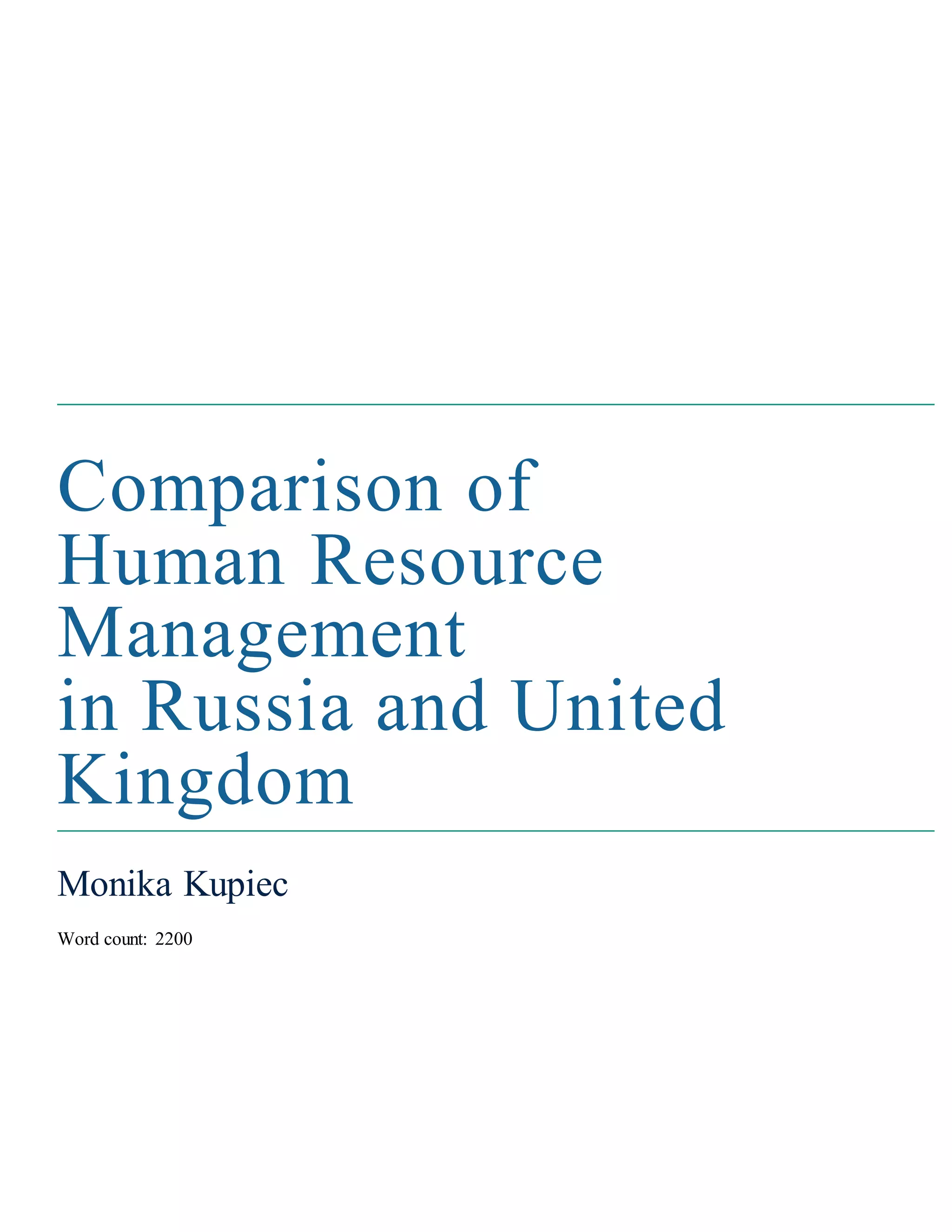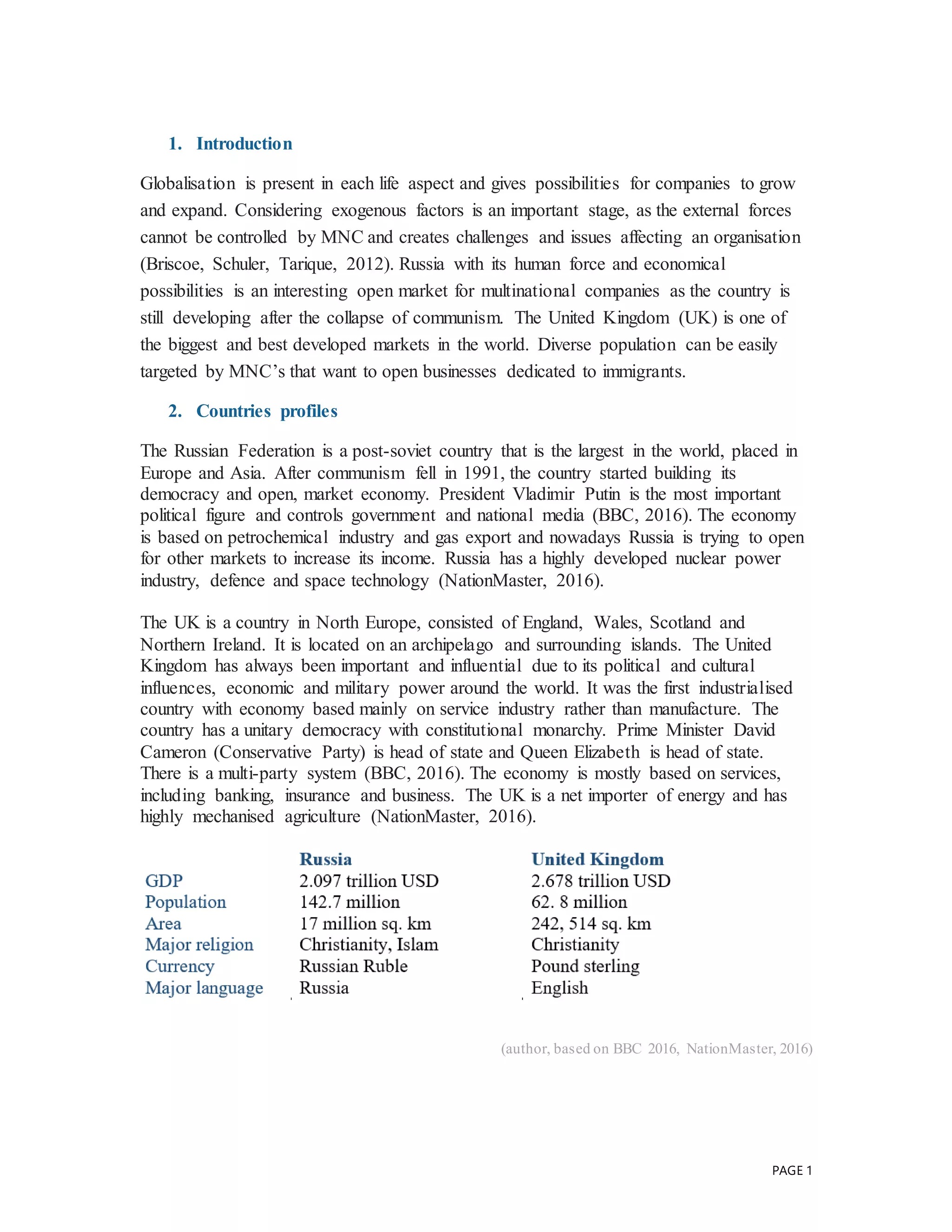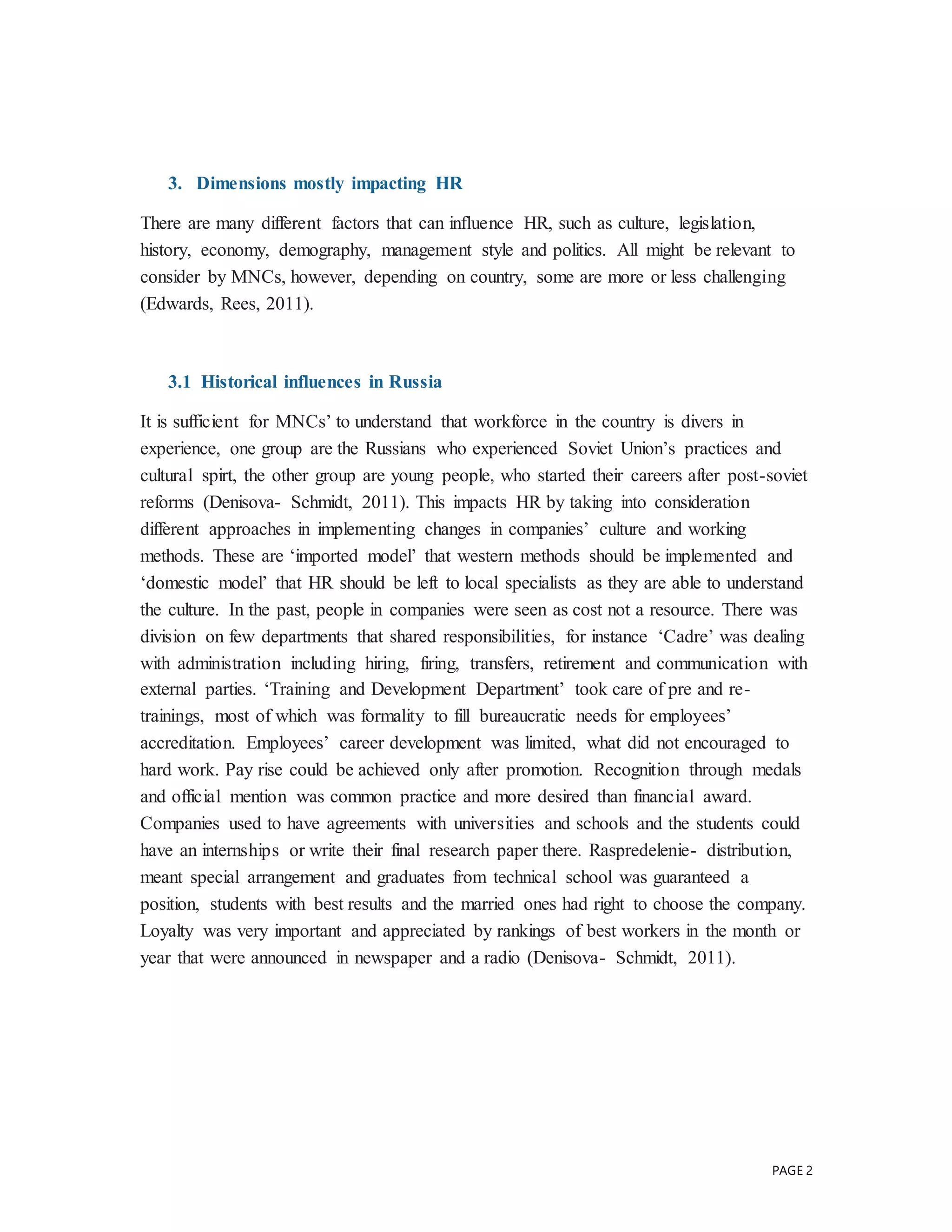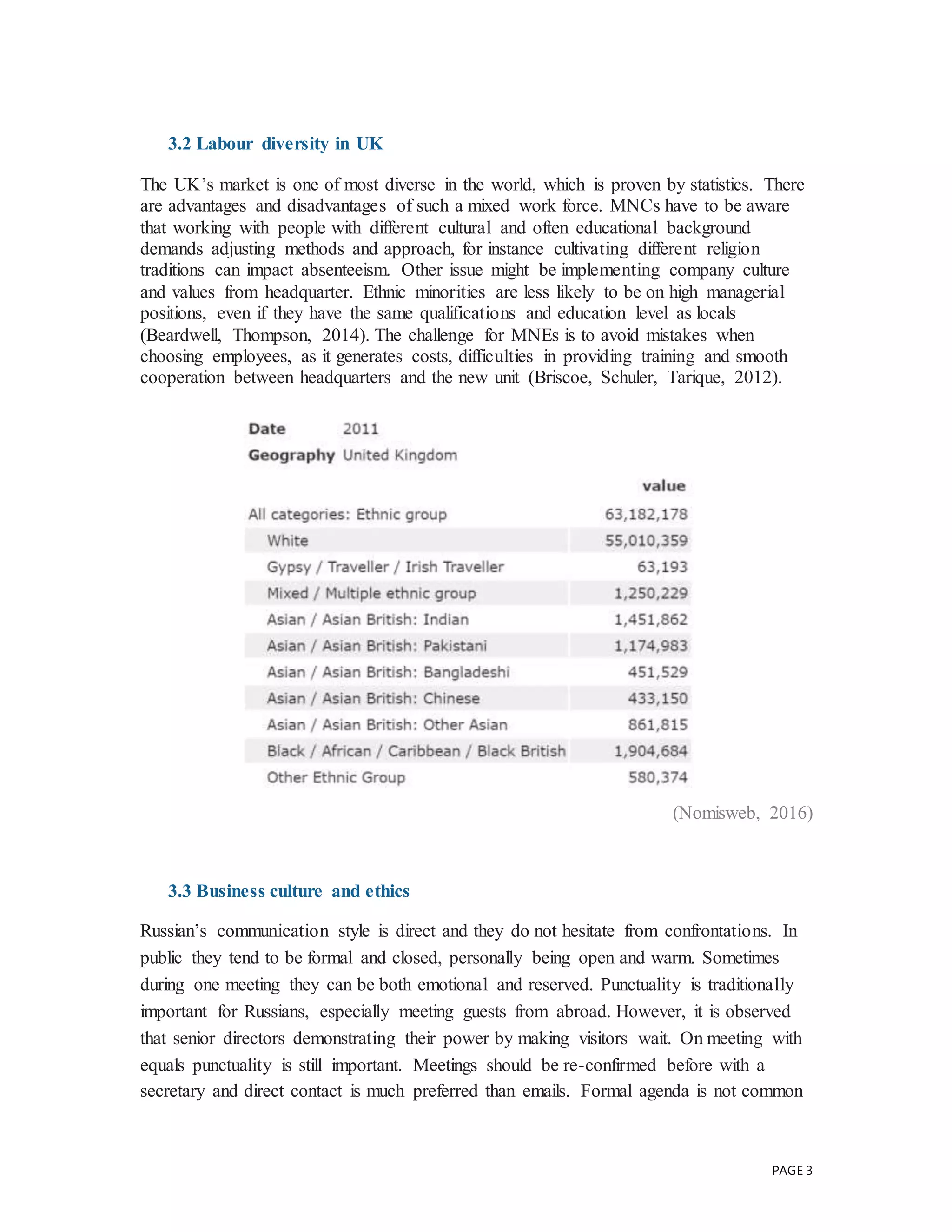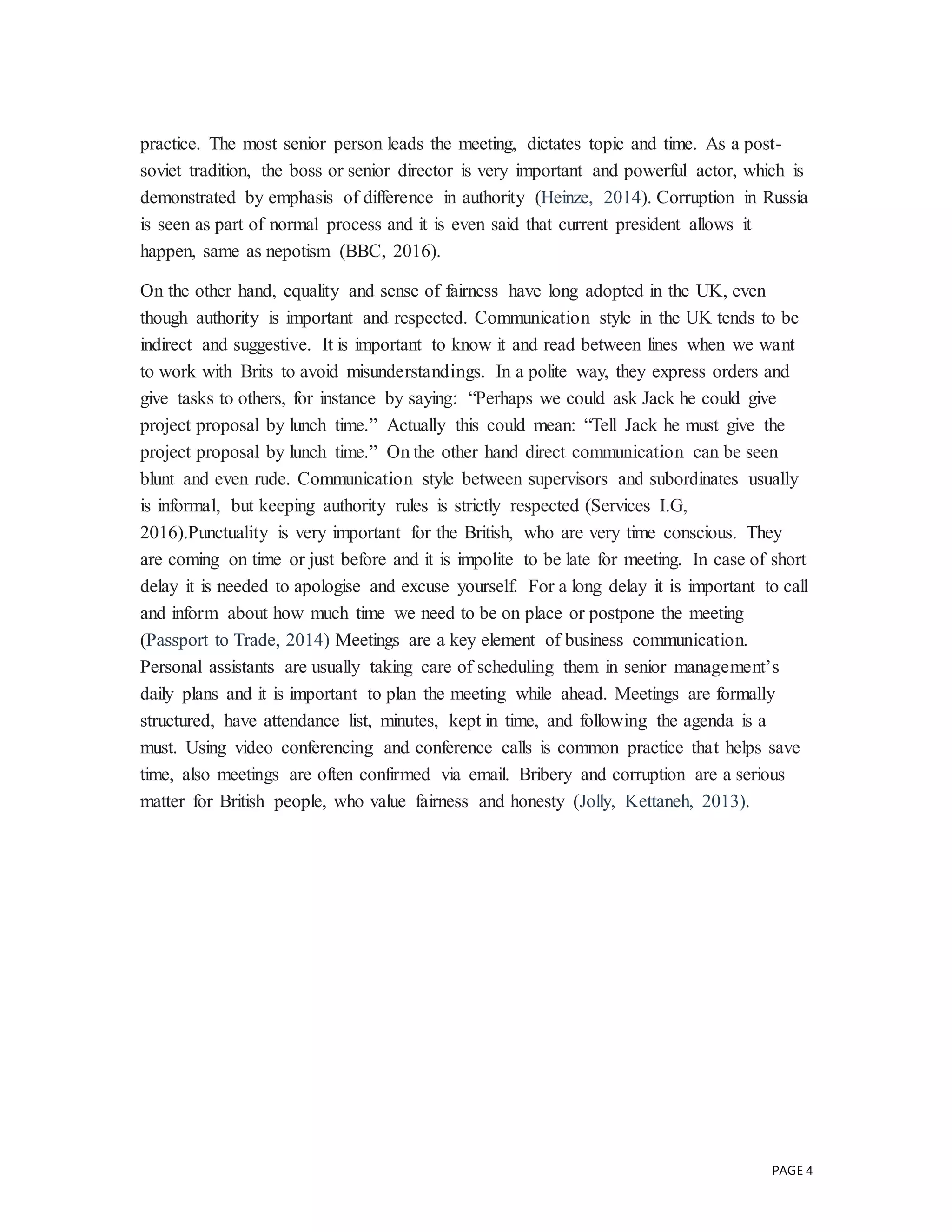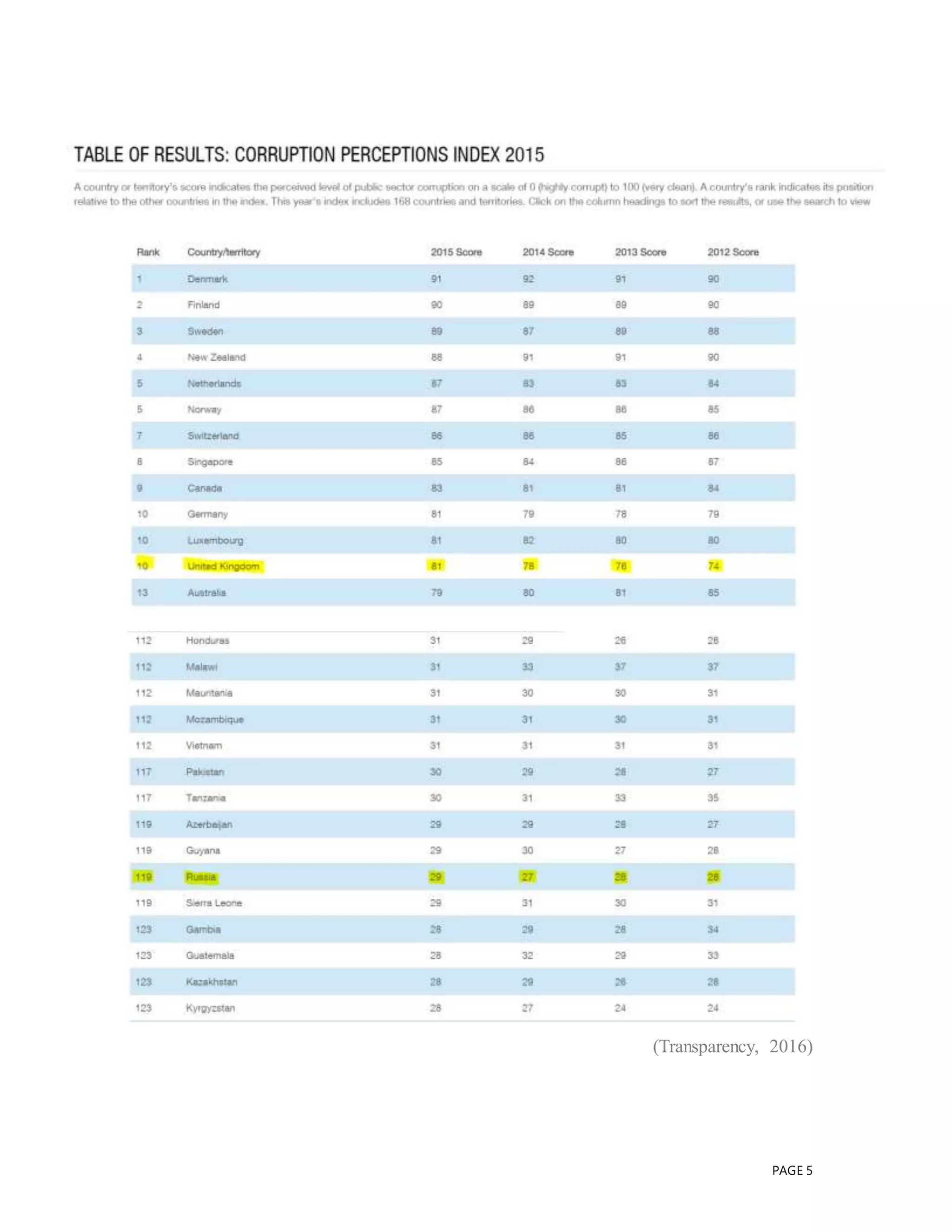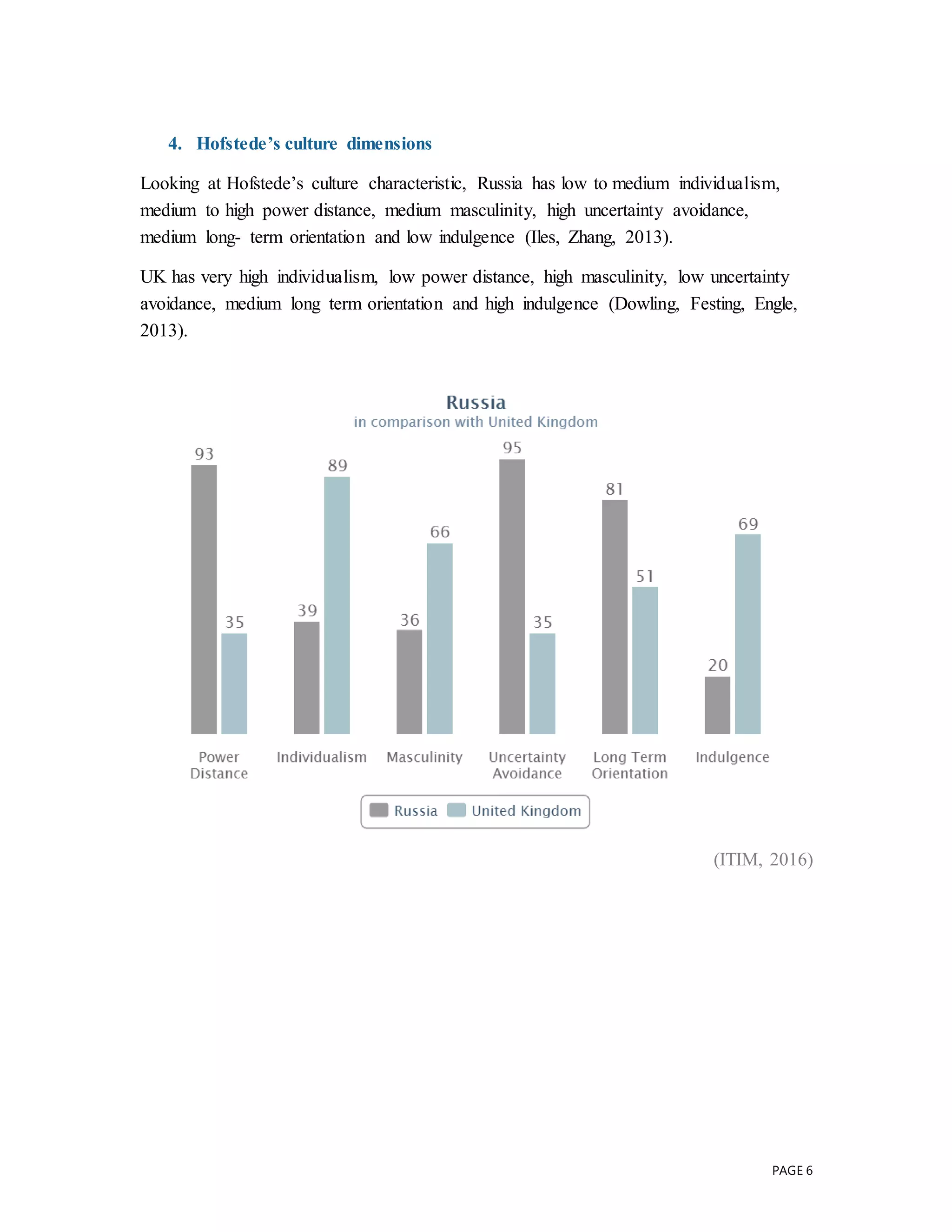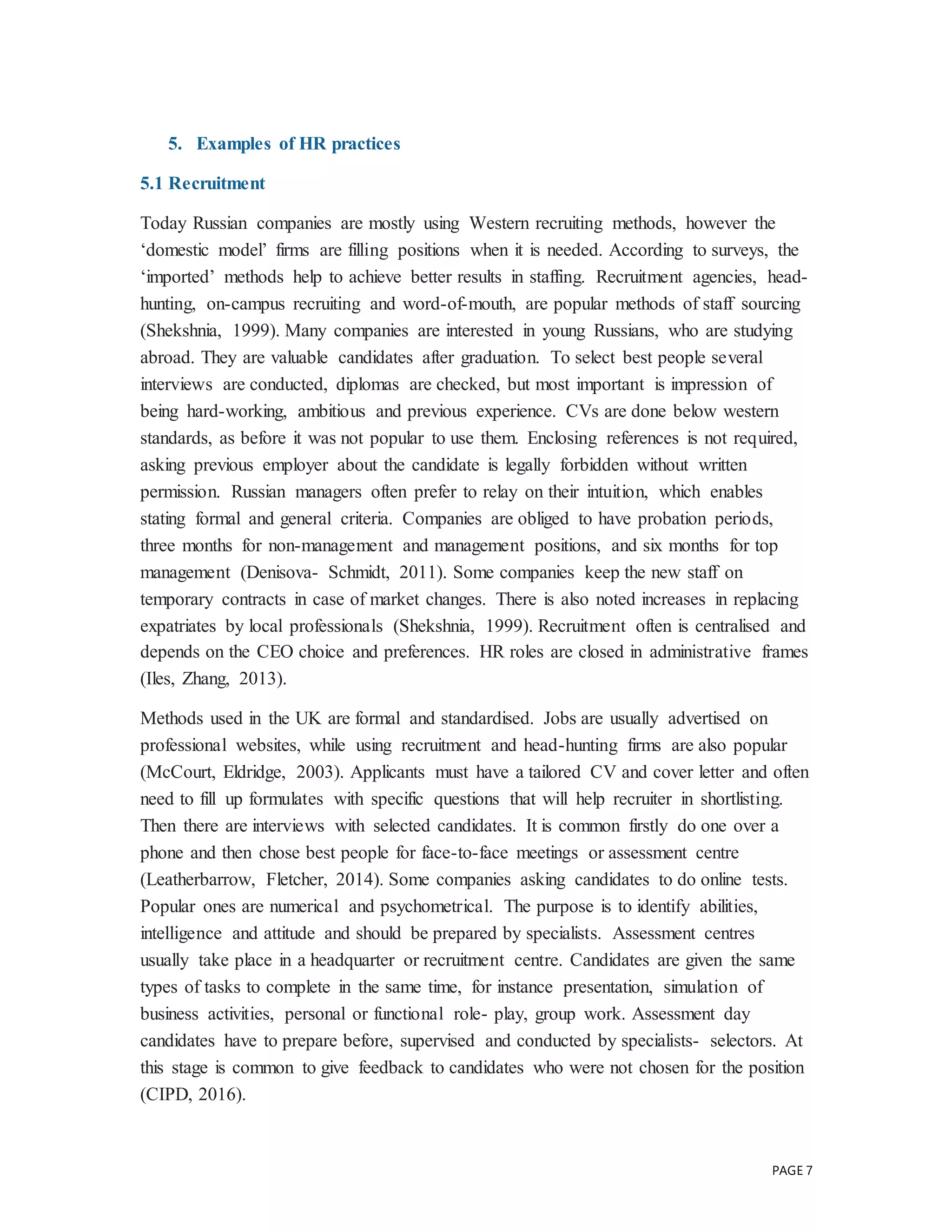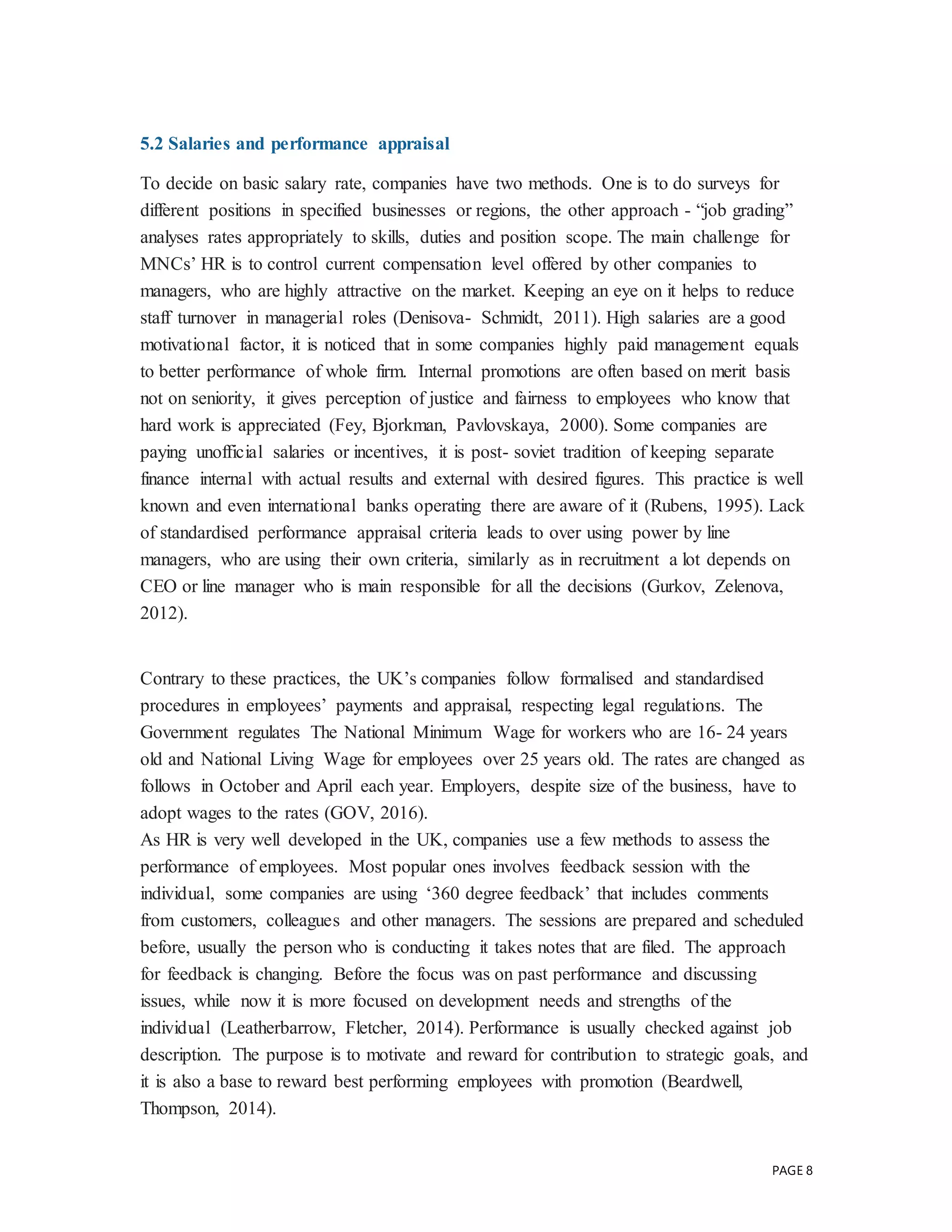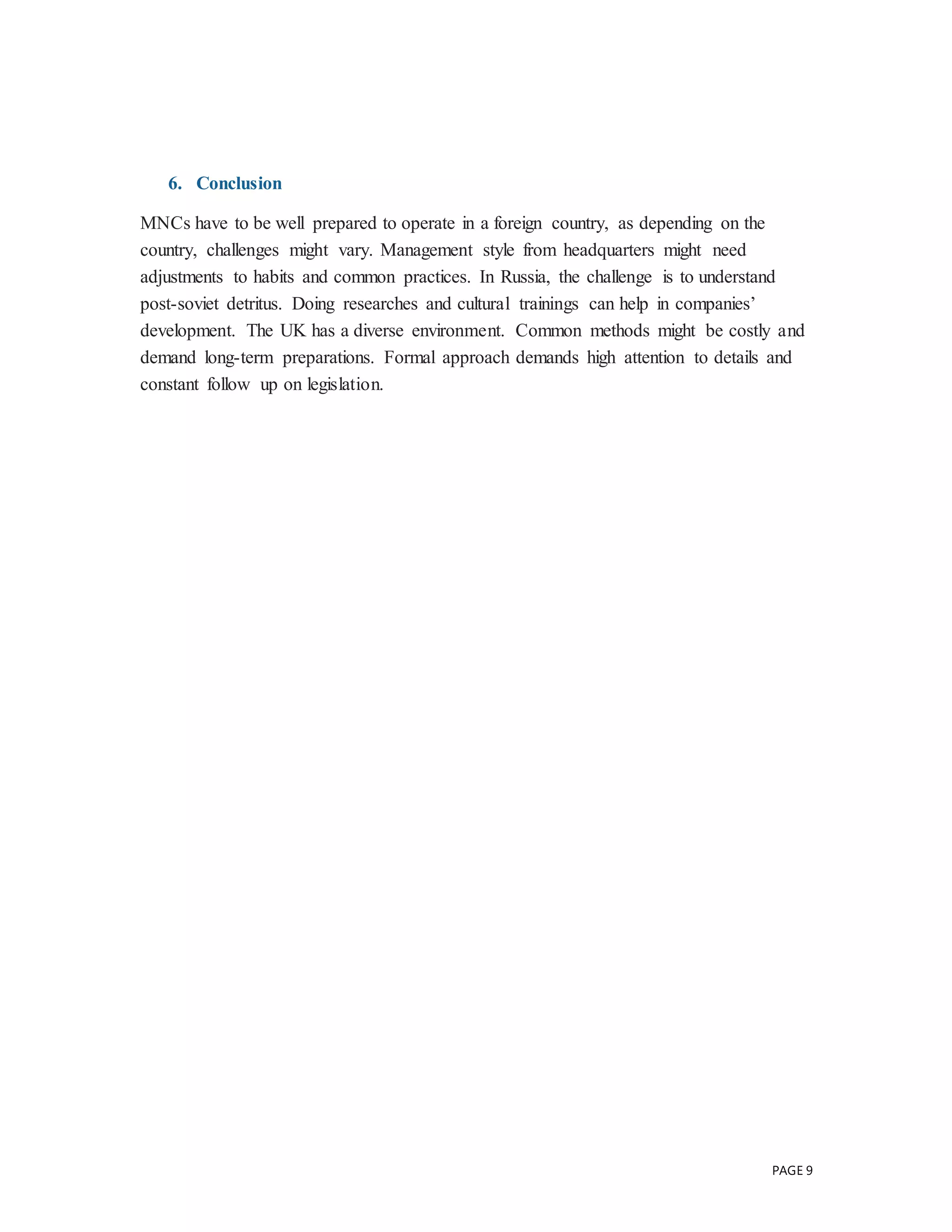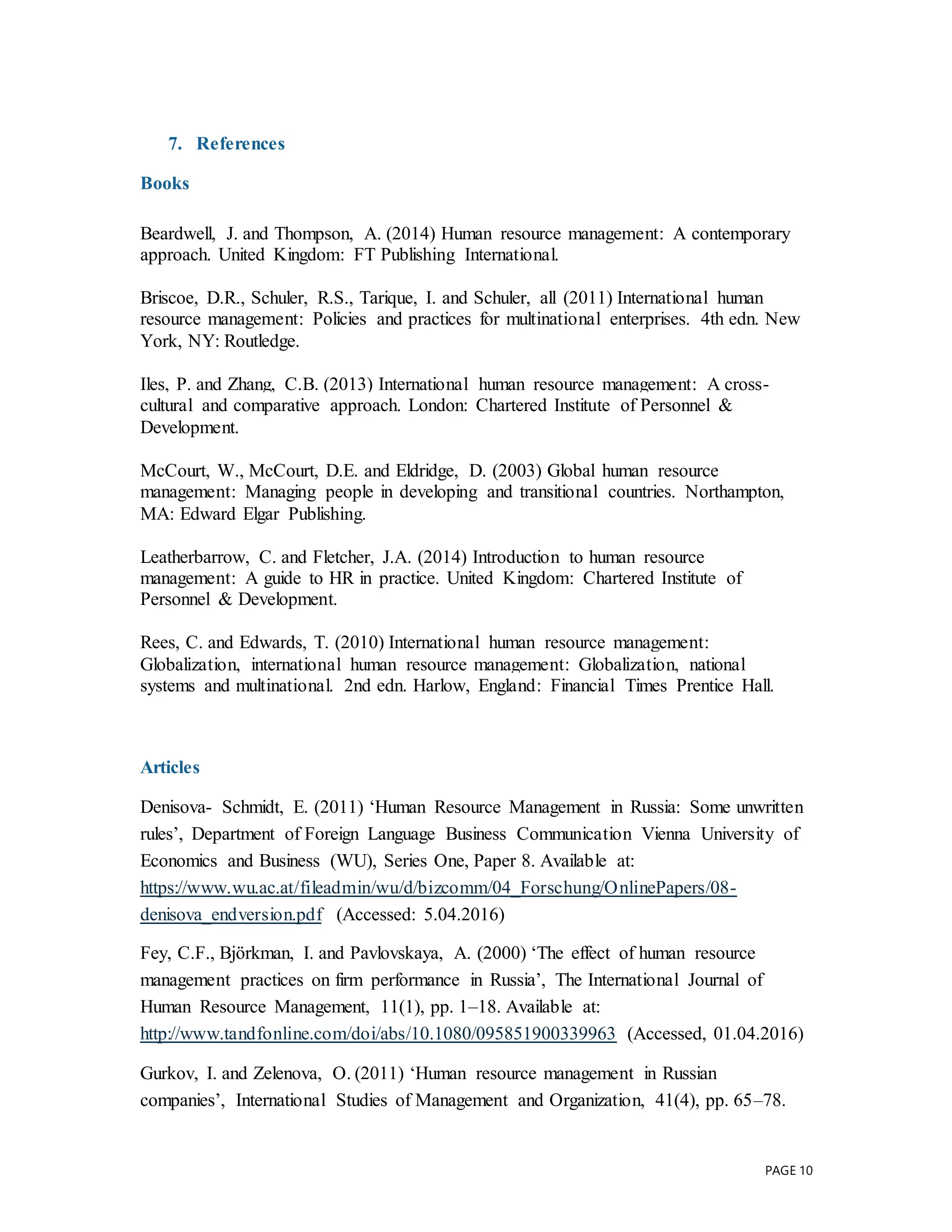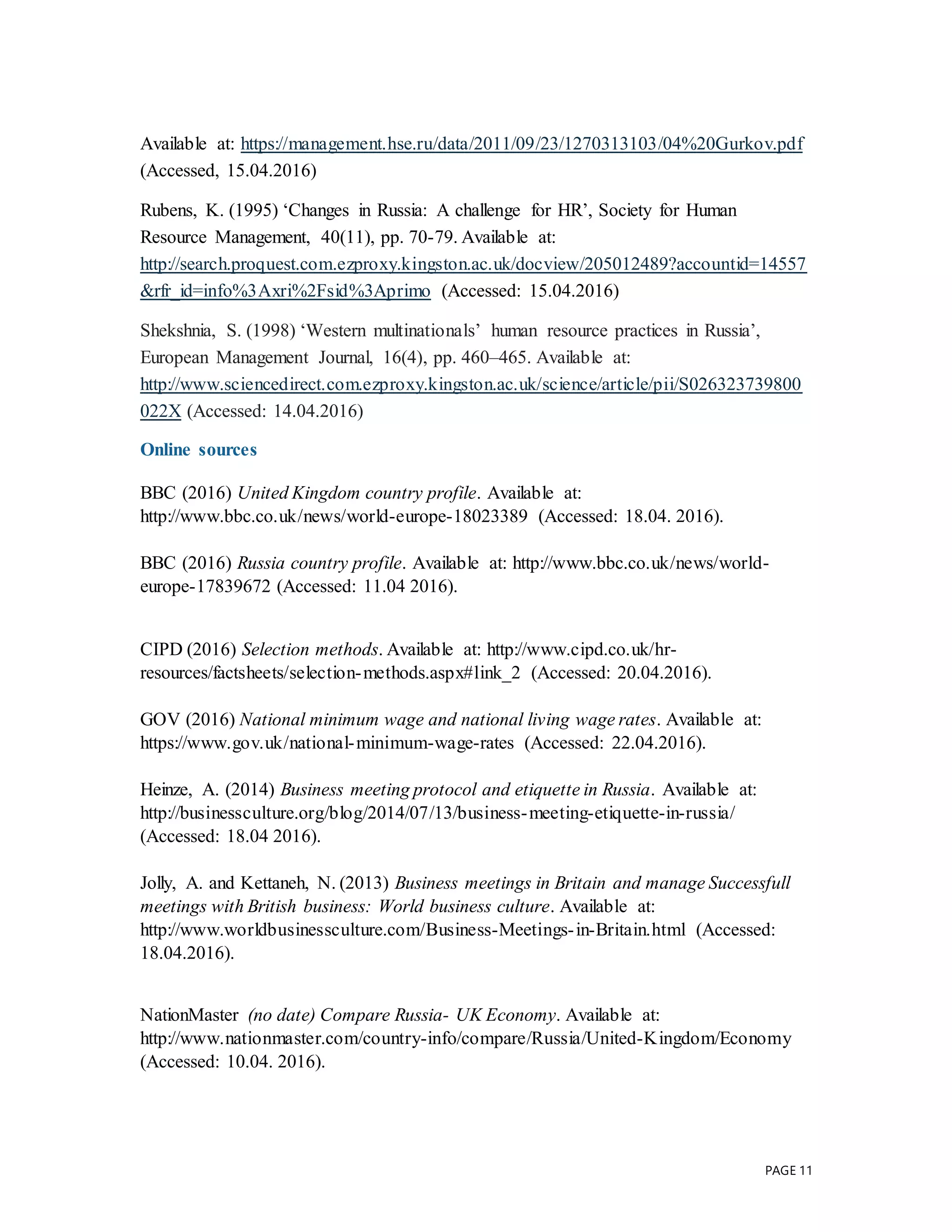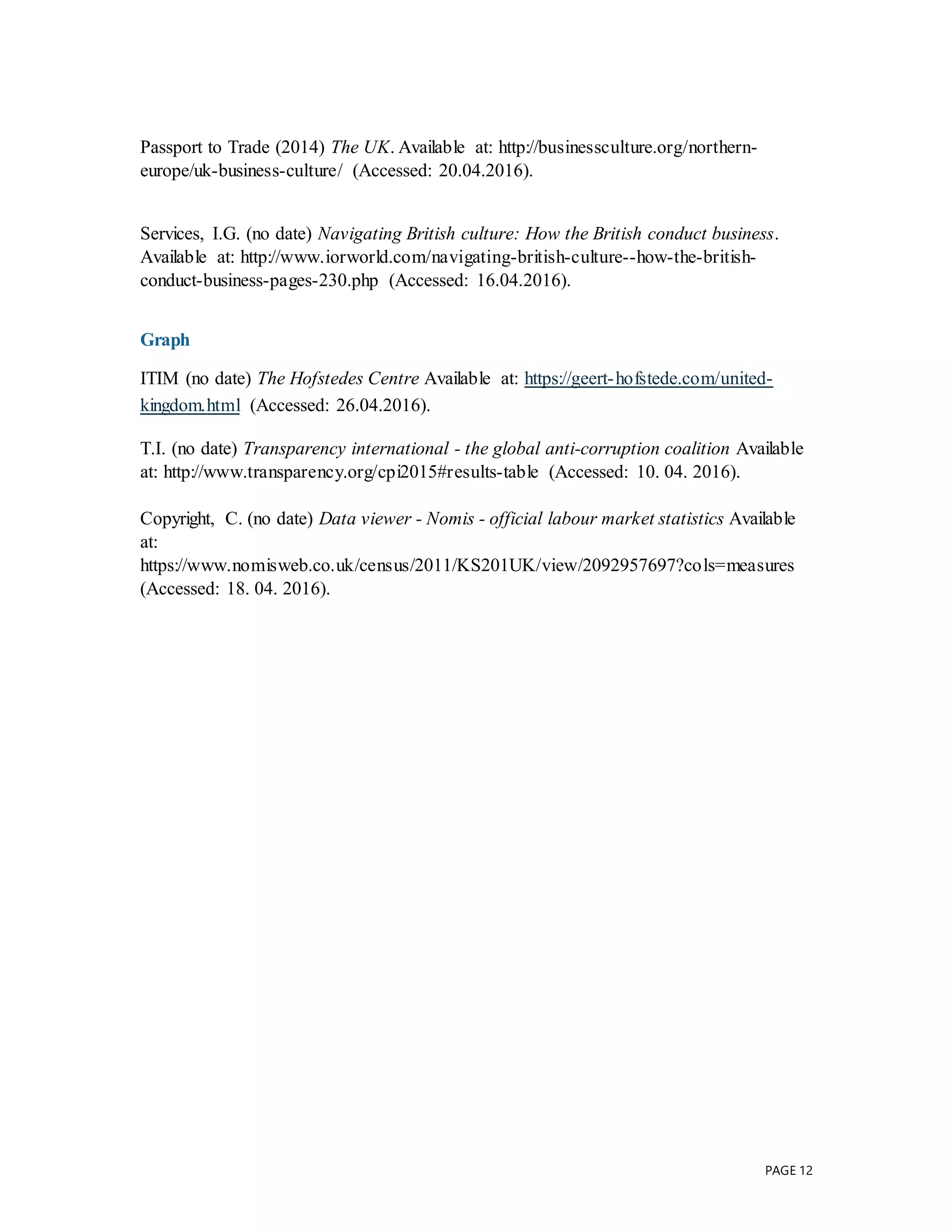Russia and the UK have differing approaches to human resource management that reflect their distinct histories and cultures. In Russia, HR practices have been influenced by the Soviet era where loyalty was valued and employees were seen as a cost. Today, Russian companies utilize some Western practices but the domestic model also persists. The UK takes a formalized approach defined by legislation and standards. Diversity is a challenge as minority groups face barriers. Performance reviews aim to motivate and develop employees according to their unique strengths. Overall, multinational companies must tailor their HR strategies to account for cultural differences between countries to effectively manage a global workforce.
